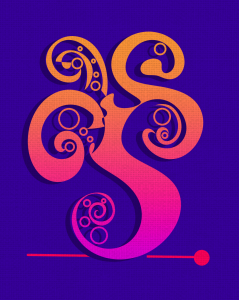“A Patient’s Notes” is the soaring voice of the phoenix as it returns from fire and death to regain its former life, power and glory. Like the phoenix, its author burned in cancer and essentially died to give birth to this short, former nurse’s autobiography. The moments that flashed before the nearly departed’s life are here arranged and presented to form a story of healing, hope and enduring legacy. As the title suggests, the book is concerned with illness and its effects on life and its meanings, for all of us who are patients of this suffering world.
Continuing the theme of healing, the sales of this book written in the genre of the Christian medical memoir provide funds to the Diospi Suyana Hospital in Peru. The name of the hospital means to “Trust in God” in the Quechua language. It is because of this noble mission that I have decided to write this book review, rather than the fact that Madeleine Channer is perhaps one of my best and most intimate friends.
Madeleine has dedicated the book to her beloved father, Lesley Francis Cole, who did not manage to escape the tearing talons of cancer that she managed to evade. In terms of structure, the narrative is initiated by the primary scene of the original patient, the father with terminal cancer and his demise. From this tragic, traumatising moment, Madeline then shows how she builds a life dedicated to healing sickness. Finally, triumphantly, Madeleine’s own struggle with cancer is overcome with the help of those around her and the modern advances in medicine. A cruel contrast therefore motivates the work: the luckily present are compared to those unfortunates of history that did not live in the healing world of today. Those unfortunates who had to say goodbye to us for want of the proper care and knowledge. However, the contrast is also an inspiration: the war that Madeline has fought throughout her entire life against disease and cancer on behalf of patients like her father has resulted in victory.
What makes the book relevant to the historical moment and cultural trends is that Madeline had her recovery in lockdown, just as the world recovered from Covid and its effects. We share the relief and sense of wholeness from the broken years of the pandemic, the exulting sense of survival against the odds. Again, the celebration of the healing profession that the book espouses is a sentiment that has overwhelmed the world and England in particular, with its National Health Service. What adds something extra to this concoction is that the author is one of the upstanding citizens from the old generation, someone who has seen and lived through it all. So we hear things through the voice of those that have built the society and the community of care around us.
The constant theme of the book is adversity and its overcoming. Madeleine writes that hers was a precarious childhood where she was subject to emotional destabilisation and a corresponding lack of self esteem. The solution that the young Madeleine found to this state was the power of prayer, with its promise of change and renewal. She saw Christ as a model to aspire to, particularly as Christ the healer and the master of living. Several other heroes who were Christian saviours of the sick are also mentioned as inspirations: Florence Nightingale, Father Damien, Dr. Albert Schweitzer. The book is therefore a good example of what it means to have an enduring role model and how this can change the course of one’s life, as one tries to live up to the demands of becoming the figure that we idolise. The role model provides organisation and structure for living amidst the chaos of being and ultimately leads Madeleine to become a Christian saviour of those suffering in her own right, one of our most valuable members of society. Christ (and her father’s terminal illness) leads Madeleine to nurse Quechua Indian patients above 10,000 feet in the Andes.
Madeleine writes:
“How do we want to be remembered? What do we leave behind us? The kindness and diligent care provided by those involved in the great work of healing will echo for good, beyond time and into eternity”.
It is because Madeleine was one who nursed the sick and poor the we respect and love her all the more, and she will always be in our thoughts and memories. She has caught that good echo of healing with this well written, engaging and stimulating book, which moreover, brings in donations for the sick and poor of this world through its sales. Even if one is not in the faith community, the book is interesting in itself as it sheds light on the trials of one that sought to do good in the world despite all the set backs that life can throw at us. I was very happy to read and review o the book, and not just because Madeleine is my very good, very supportive, very perfect friend. Rather, it is because the book is the voice of the phoenix that has been brought back to her full beauty, after joining in that restless, oceanic sleep which haunts our being and time.
